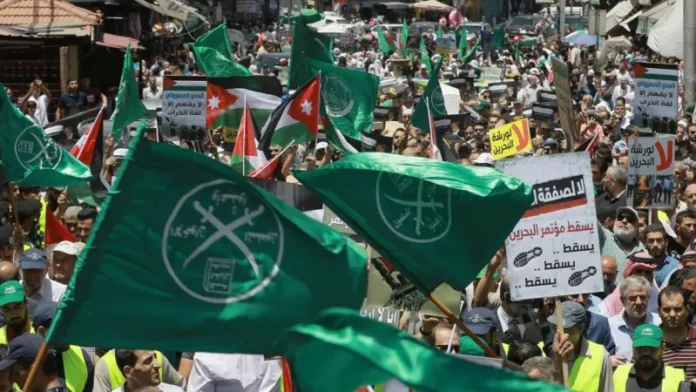US President Donald Trump has ordered senior officials to examine whether certain chapters of the Muslim Brotherhood should be designated as terrorist organisations, a move that could impose sweeping sanctions and reshape American counterterrorism policy.
The executive order, issued on Monday, directs the US Secretary of State Marco Rubio and Treasury Secretary Scott Bessent to evaluate whether Brotherhood branches in Egypt, Lebanon and Jordan meet the criteria for designation as foreign terrorist organisations (FTOs) and specially designated global terrorists (SDGTs).
According to the White House, the order responds to what it calls the group’s “transnational network” and alleged ties to Hamas. It claims the Brotherhood has supported “destabilization campaigns that harm their own regions, United States citizens, and United States interests”.
The Muslim Brotherhood, founded in Egypt almost a century ago, is one of the most influential Islamist movements in the Middle East. Though its ideology varies across countries, many of its chapters have played major roles in political life. The group is banned in Egypt and Jordan, while restrictions on its activities vary widely elsewhere.
Under the order, Secretary of State Rubio and Treasury Secretary Bessent must consult Attorney General Pam Bondi and Director of National Intelligence Tulsi Gabbard. A comprehensive report is expected within 30 days.
If the officials determine that the Brotherhood’s chapters meet the legal standards for terrorist designation, they will have an additional 45 days to impose sanctions. These measures could include freezing assets, barring financial transactions, and restricting travel for members associated with the group.
White House officials say the move reflects the administration’s aim to counter what it views as threats from Islamist organisations that have political, social and religious influence across borders.
“President Trump is confronting the Muslim Brotherhood’s transnational network, which fuels terrorism and destabilization campaigns against US interests and allies in the Middle East,” the White House said.
A designation would mark one of Washington’s strongest actions against the Brotherhood to date. It would also make it illegal for individuals or organisations in the United States to provide any form of support to the group.
The order comes amid escalating measures by US states. Last week, the governor of Texas declared the Muslim Brotherhood a foreign terrorist organisation and a transnational criminal organisation.
The Texas directive also labelled the Council on American-Islamic Relations (CAIR) — the largest Muslim civil rights organisation in the US — with the same status, barring both groups from purchasing land within the state.
These actions have provoked criticism from civil rights advocates, who warn that such designations could be used to unfairly target Muslim communities and organisations engaged in political activism or religious work.
The Brotherhood’s international presence has long posed challenges for governments seeking a uniform approach to its activities. While the movement advocates for governance based on Islamic law, local branches vary in political orientation. Some engage in electoral politics, while others operate as social organisations or religious movements.
The Trump administration previously considered designating the group during his first term, following meetings with Egyptian President Abdel Fatah El-Sisi. Egypt, along with Saudi Arabia and the United Arab Emirates, has long argued that the Brotherhood poses a threat to national stability and regional security.
Jordan, which had tolerated Brotherhood-linked political groups for decades, banned the organisation in April after arresting members accused of planning rocket and drone attacks. Lebanese authorities have also kept a close watch on the group’s affiliates, particularly amid broader regional tensions involving Hamas and Hezbollah.
If implemented, the US designation could strain diplomatic relations with countries where the Brotherhood remains part of the political landscape. Analysts say the move may also complicate Washington’s engagement with groups that have loose or historical ties to the movement.
For now, the administration awaits the findings of its own inquiry. Whether the Brotherhood’s branches are ultimately designated or not, the review signals a renewed and potentially far-reaching shift in US counterterrorism and foreign policy.

